|
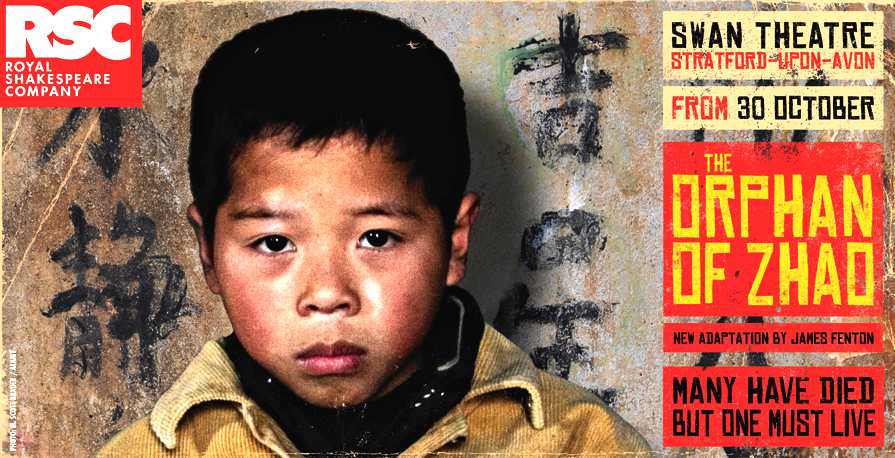
The Royal Shakespeare Company (RSC) is a major British theatre company, based in Stratford-upon-Avon, Warwickshire, England. The company employs 700 staff and produces around 20 productions a year from its home in Stratford-upon-Avon and plays regularly in London, Newcastle upon Tyne and on tour across the UK and internationally.
The company’s home is in Stratford-upon-Avon, where it has recently redeveloped its Royal Shakespeare and Swan theatres as part of a £112.8-million "Transformation" project. The theatres re-opened in November 2010, having closed in 2007. The new buildings attracted 18,000 visitors within the first week and received a positive media response both upon opening, and following the first full Shakespeare performances. Performances in Stratford-upon-Avon continued throughout the Transformation project at the temporary Courtyard Theatre.
As well as the plays of Shakespeare and his contemporaries, the RSC produces new work from living artists and develops creative links with theatre-makers from around the world, as well as working with teachers to inspire a lifelong love of William Shakespeare in young people and running events for everyone to explore and participate in its work.
The RSC celebrated its fiftieth birthday season from April–December 2011, with two companies of actors presenting the first productions designed specifically for the new Royal Shakespeare and Swan Theatre stages. The 2011-season began with performances of Macbeth and a re-imagined lost play The History of Cardenio. The fiftieth birthday season also featured The Merchant of Venice with Sir Patrick Stewart and revivals of some of the RSC’s greatest plays, including a new staging of Marat/Sade.
For the 2012 London Festival as part of the Cultural Olympiad, the RSC produced the World Shakespeare Festival, featuring artists from across the world performing in venues around the UK.
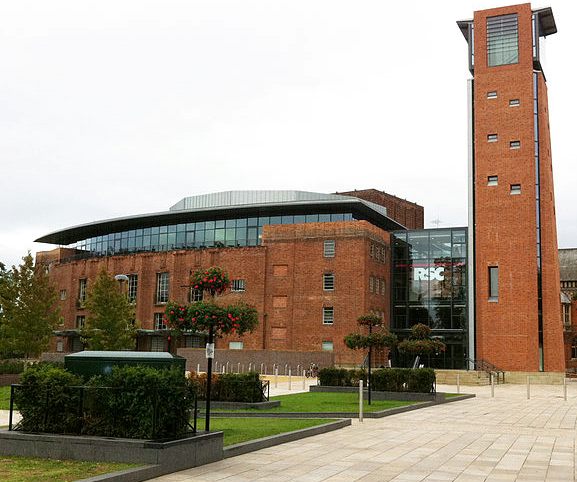
Company history
- The early years
There have been theatrical performances in Stratford-upon-Avon since at least Shakespeare’s day, though the first recorded performance of a play by Shakespeare himself was in 1748 when Parson Joseph Greene, master of Stratford grammar school, organised a charitable production to fund the restoration of Shakespeare's funerary
monument. John Ward's company agreed to perform it. Records do not say which play it was, but the Victorian scholar B.C.A. Windle states that it was
Othello. The first building erected to commemorate Shakespeare was David Garrick's Jubilee Pavilion in 1769, and there have been at least 17 buildings used to perform Shakespeare's plays since.
The first permanent commemorative building to Shakespeare’s works in the town was built in the late 1870s, in the gardens of New Place, but has long since been demolished. The RSC’s history began with the Shakespeare Memorial Theatre, which was the brainchild of a local brewer, Charles Edward Flower. He donated a two-acre site by the River Avon and in 1875 launched an international campaign to build a theatre in the town of Shakespeare’s birth. The theatre, a Victorian-Gothic building seating just over 700 people, opened on 23 April 1879, with a performance of Much Ado About Nothing, a title which gave ammunition to several critics.
The Memorial, a red brick Gothic cathedral, designed by Dodgshun and Unsworth of Westminster, was unkindly described by Bernard Shaw as "an admirable building, adaptable to every purpose except that of a theatre." From 1919, under the direction of William Bridges-Adams and after a slow start, its resident New Shakespeare Company became one of the most prestigious in Britain. The theatre received a Royal Charter of Incorporation in 1925, which gave it status.
On the afternoon of 6 March 1926, when a new season was about to commence rehearsals, smoke was seen. Fire broke out, and the mass of half-timbering chosen to ornament the interior provided dry tinder. By the following morning the theatre was a blackened shell. The company transferred its Shakespeare festivals to a converted local cinema. Fund-raising began for the rebuilding of the theatre, with generous donations arriving from philanthropists in America.
In January 1928, following an open competition, 29-year-old Elisabeth Scott was unanimously appointed architect for the new theatre which became the first important work erected in the United Kingdom from the designs of a woman
architect. George Bernard Shaw commented that her design was the only one that showed any theatre sense. Her modernist plans for an art deco structure came under fire from many directions but the new building was opened triumphantly on William Shakespeare's birthday, 23 April 1932. Later it came under the direction of Sir Barry Jackson in
1945, Anthony Quayle from 1948 to 1956 and Glen Byam Shaw 1957-1959, with an impressive roll-call of actors. Scott's building, with some minor adjustments to the stage, remained in constant use until 2007 when it was closed for a major refit of the interior.
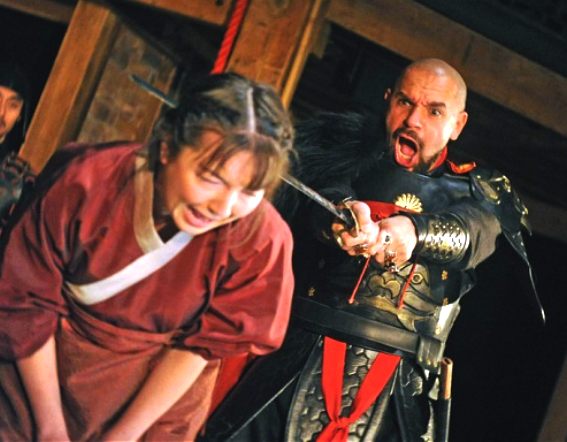
Timeline:
1932 – new Shakespeare Memorial Theatre opens, abutting the remains of the old.
1961 – chartered name of the corporation and the Stratford theatre becomes ‘Royal Shakespeare.’
1974 – The Other Place opened, created from a prefabricated former store/rehearsal room in Stratford.
1986 – the Swan Theatre opened, created from the shell of the 1879 Memorial Theatre.
1991 – Purpose-built new Other Place, designed by Michael Reardon, opens.
2004 Sept – The vision for the renewal of the Royal Shakespeare Theatre transformation is announced.
2006 July – The Courtyard Theatre opens with a staging of Michael Boyd’s Histories.
2010 Nov – The Royal Shakespeare and Swan Theatres re-open following their transformation.
The RSC
- Foundation and history
In 1959, while still the director-designate of the Memorial Theatre, Peter Hall announced that the formation of a permanent company would be a primary objective. David Addenbrooke wrote of Hall's belief that Shakespeare, more than any other dramatist, needed a 'style', a tradition and unity of direction and
acting. On 14 January 1960, Hall's first policy statement as director also proposed the acquisition of a second theatre, in London, to be used as a city outlet for selected Stratford productions. The RSC was formally established on 20 March 1961 with the royal announcement that the Shakespeare Memorial Theatre would henceforth be known as the Royal Shakespeare Theatre and the company as the Royal Shakespeare Company.
The critic Michael Billington, summarising these events, wrote: "In 1960 the twenty-nine-year-old Peter Hall formally took charge at Stratford-upon-Avon and set about turning a star-laden, six-month Shakespeare festival into a monumental, year-round operation built around a permanent company, a London base and contemporary work from home and abroad. Looking back, it is difficult to realise just how radical Hall's dream was at the time; or indeed how much opposition there was to the creation of what became officially known in March 1961 as the Royal Shakespeare
Company."
John Barton had been appointed associate director in January 1960, and was followed in 1962 by Michel Saint-Denis, Peter Brook and Clifford Williams who joined the company as resident directors. John Bury was appointed head of design in 1964. The repertoire was also widened to take in modern work and classics other than Shakespeare.
In 1962, strong opposition to the establishment of a London base for the RSC came from the Royal National Theatre which — led by Viscount Chandos and
Laurence Olivier — wished to be the sole subsidized company operating in London. Following a deal with Prince Littler, managing director of Associated Theatre Properties, the RSC established the Aldwych Theatre as its London base for productions transferred from Stratford to London, its stage redesigned to match the RST's apron stage.
Twenty years later, in the summer of 1982, the company took up London residence in both the Barbican Theatre and The Pit studio space in the Barbican Centre under the auspices of the City of London. The RSC was closely involved in the design of these two venues. In 2002 it left the Barbican after a series of allegedly poor seasons, partly because the then artistic director Adrian Noble wanted to develop the company's touring performances. His decision means the company has no regular London home.
Innovation and growth
The RSC had first tackled its need for a small auditorium in 1971. At the insistence of Sir Trevor Nunn (who had taken over as artistic director in 1968), the company hired The Place off the Euston Road in London and constructed its own theatre space for an audience of 330, seated on raked wooden benches. Two seasons of plays were staged in 1972 and 1973, none suitable for the Aldwych. In December 1973 Buzz Goodbody, a promising young director, drew up a plan for what would become The Other Place studio theatre in Stratford, designed by Michael Reardon to seat 140 people, which opened to a first and highly successful season in 1974. The name chosen for the new studio space was favoured within the company because it implied an alternative theatre, but also because it is a quotation from Hamlet.
In August 1976, Nunn staged Macbeth with a minimalist set at The Other Place, playing for 2 hours 15 minutes without an interval. The small, nearly round stage focused attention on the psychological dynamics of the characters. Both Ian McKellen in the title role and Judi Dench as Lady Macbeth received exceptionally favourable reviews. The production transferred to London, opening at the Donmar Warehouse in September 1977 before its further transfer to the larger Young Vic venue for a two-month season. It was also recorded for transmission by Thames Television. In 2004, members of the RSC voted Dench's performance the greatest by an actress in the history of the company.
Summing up this triumphant period, The Guardian critic Michael Billington later wrote: "[In 1977] the RSC struck gold. This was, in fact, the perihelion of Trevor Nunn's ten-year reign as the company's sole Artistic Director and Chief Executive (in 1978 he began to share power with Terry Hands. In London, the company opened a new studio space at the Donmar Warehouse with plays by Barker, Taylor, Bond and Brecht. Its Aldwych repertory combined the usual Stratford transfers with Nichol's Privates on Parade, Ibsen's Pillars of the Community and Brecht's The Days of the Commune. At the Royal Shakespeare Theatre, Terry Hands and actor Alan Howard had a marathon year working on Henry V, a virtually uncut, Henry VI, part 1, Henry VI, part 2 and Henry VI, part 3 and Coriolanus. And the action at The Other Place included Jonson, Ford, Musset, Gems and Rudkin. No other company in the world could match that output for quantity and
quality"
Nunn and Hands were joint artistic directors of the RSC when the company opened The Swan, its third theatre in Stratford. The Swan Theatre, also designed by Michael Reardon, has a deep thrust stage and a galleried, intimate 450-capacity auditorium. The space was to be dedicated to playing the works of Shakespeare's contemporaries, the works of European writers and the occasional work of Shakespeare. The theatre was launched on 8 May 1986 with a production of The Two Noble Kinsmen by William Shakespeare and John Fletcher (not published until 1634 and thought to be Shakespeare's last work for the stage). It was directed by Barry
Kyle.
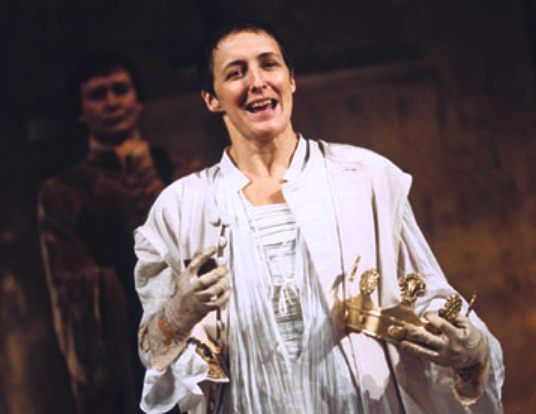
Troubled times
Nunn (who had been appointed to follow Hall's tenure at the National Theatre in 1986) ceded his RSC executive directorship to his co-artistic director Terry Hands, who took the brunt of media hostility during a difficult few years for the company. Hands took the decision to suspend the RSC's residency at The Barbican Theatre and The Pit during the winter season of 1990-91, thus vacating the capital for the first time in 30 years. This was seen as essential if the RSC was to secure an increase in subsidy from the Arts
Council.
Shortly after that decision Adrian Noble returned to the RSC to take over from Hands as artistic director and chief executive. The company had serious funding problems. Noble's decision to sever all RSC connections with the Barbican Centre, funded by the Corporation of the City of London, was widely
condemned, and towards the end of his tenure things began to go terribly wrong, partly through his pursuit and support of the so-called Project Fleet, a radical scheme aimed at rescuing the RSC from its financial crisis by replacing the Royal Shakespeare Theatre with a crowd-pleasing 'Shakespeare Village' and streamlining the company's performance structure and ensemble
principle.
A 21st-century renaissance
None of Noble's plans came to fruition. He left the job, an unhappy man, in March
2003. Michael Boyd then assumed control of the RSC, now burdened with a deficit of £2.8 million. By a combination of artistic excellence and quiet husbandry, including a year-long Complete Works of Shakespeare Festival (begun in April 2006 in collaboration with other theatre companies) plus a financially successful London season at the Novello Theatre in 2006, Boyd slowly rebuilt the company's fortunes and reputation.
In 2007 he launched the long-awaited Stratford theatre redevelopments, including construction of the temporary Courtyard Theatre while work was in progress, designed to house his RSC Histories cycle before its transfer to the Roundhouse in London in
2008. Talking of these achievements with typical modesty he told the Evening Standard in December 2007 ('The Man Who Remade the RSC'): "There was a bit of gardening to do, but we are now beginning to show signs of walking the walk." 'The Histories' ensemble went on to win three Olivier awards in
2009. In addition, that same year the RSC commissioned a completely new addition of Shakespeare's First Folio, titled "William Shakespeare Complete Works" and published by Modern Library.
For another, more critical, view of Michael Boyd's RSC see Simon Trowbridge's book The Company: a Biographical Dictionary of the RSC.
The RSC is the sole British member theatre of the Union of the Theatres of Europe.
In March 2008, the RSC launched a manifesto 'Stand up for Shakespeare', a campaign to promote a positive experience of Shakespeare for children and young people. The tenets of this manifesto, Do it on Your Feet, See it Live, Start it Earlier form the basis of the work of the Education department.
In 2010, the RSC opened a new suite of education spaces on Waterside.
In summer 2011 the company undertook a residency in Park Avenue Armory, New York, running a series of performances and an accompanying education programme in partnership with the NYC Department of Education.
In 2012, the RSC is producing the World Shakespeare Festival, a celebration of 'Shakespeare as the world’s playwright' working with UK and international arts organisations, and including the Globe to Globe Festival by Shakespeare’s Globe.
Artistic directors
Peter Hall (1960–1968)
Trevor Nunn (1968–1978)
Trevor Nunn and Terry Hands (1978–1986)
Terry Hands (1986–1991)
Adrian Noble (1991–2003)
Michael Boyd (2003–2012)
Greg Doran (2012– )
Theatres
The RSC has two permanent theatres in Stratford-upon-Avon:
1. The Royal Shakespeare Theatre, a 1,040+ seat theatre with thrust stage (re-opened 24 November 2010 after Transformation
project)
2. The Swan Theatre, a smaller thrust stage, approx 450 capacity
It also has The Courtyard Theatre which was built as a temporary theatre to house the Company's work when the RST and Swan were closed for the Transformation project. It provided a full-scale working prototype for the new RST's auditorium, seating 1,045 people around a thrust stage. It is being used in 2012 for productions in the World Shakespeare Festival including Much Ado About Nothing in an Indian setting.
The company's London presence has included tenancies of the Aldwych Theatre, The Place in Duke's Road, Euston, the Donmar Warehouse in Covent Garden, the Barbican Theatre and The Pit at the Barbican Centre in the City of London. There have also been seasons at The Mermaid Theatre, the Almeida Theatre (1988 and 1989), the Roundhouse in Camden, the Young Vic, the Playhouse Theatre, the Novello Theatre and the Gielgud Theatre.
Key productions
Coriolanus, with Laurence Olivier as Coriolanus, Edith Evans, Vanessa Redgrave, Albert Finney and Mary Ure, directed by Peter Hall (1959)
King Lear directed by Peter Brook with Paul Scofield as Lear (1962)
The Wars of the Roses, adaptation of the Henry VI and Richard III plays, directed by Sir Peter Hall 1963-64 with Ian Holm, Peggy Ashcroft and David Warner
Marat/Sade by Peter Weiss directed by Peter Brook (1964)
The Homecoming by Harold Pinter, world premiere directed by Peter Hall (June 1965)
Staircase with Paul Scofield and Patrick Magee (1966)
Hamlet directed by Peter Hall with David Warner in the title-role (1965)
A Midsummer Night's Dream, directed by Peter Brook (1970)
Old Times by Harold Pinter directed by Peter Hall (1971)
Julius Caesar directed by Trevor Nunn (1973)
Antony and Cleopatra directed by Trevor Nunn starring Janet Suzman (1973)
Richard II, directed by John Barton, starring Ian Richardson and Richard Pasco, alternating the roles of Richard and Bolingbroke (1973–74)
Travesties by Tom Stoppard, starring John Wood, world premiere directed by Peter Wood (June 1974)
The Marrying of Ann Leete by Harley Granville Barker, starring Mia Farrow, directed by David Jones (September 1975)
Hamlet, starring Ben Kingsley, directed by Buzz Goodbody (1976)
Romeo and Juliet, starring Ian McKellen and Francesca Annis, directed by Trevor Nunn (March 1976)
Much Ado About Nothing, starring Judi Dench and Donald Sinden, directed by John Barton (April 1976)
The Iceman Cometh by Eugene O'Neill, with Alan Tllvern taking over the role of Hickey from the "indisposed" Ian Holm, directed by Howard Davies (May 1976)
The Comedy of Errors, a musical by Trevor Nunn and Guy Woolfenden (September 1976)
Wild Oats by John O'Keeffe, starring Alan Howard and Jeremy Irons, directed by Clifford Williams (December 1976)
Macbeth, directed by Trevor Nunn starring Judi Dench and Ian McKellen (1976–1977)
Privates on Parade by Peter Nichols, world premiere directed by Michael Blakemore (February 1977)
Destiny by David Edgar, world premiere directed by Ron Daniels (May 1977)
The Greeks directed and adapted from Aeschylus, Euripides and Sophocles by John Barton (1980)
The Life and Adventures of Nicholas Nickleby adapted for the stage by David Edgar, world premiere directed by Trevor Nunn and John Caird (1980), winner of a Drama Desk Special Award in 1982
Much Ado About Nothing directed by Terry Hands starring Derek Jacobi and Sinéad Cusack
Richard III, directed by Bill Alexander starring Sir Antony Sher (1984)
Les Misérables by Claude-Michel Schoenberg and Alain Boublil directed by Trevor Nunn (1985)
Les liaisons dangereuses by Christopher Hampton starring Alan Rickman, Lindsay Duncan, and Juliet Stevenson, world premiere directed by Howard Davies (1985)
Titus Andronicus directed by Deborah Warner starring Brian Cox (1988)
The Plantagenets adaptation of Henry VI, part 1, part 2 and part 3 and Richard III, directed by Adrian Noble, starring Anton Lesser as Richard III, Ralph Fiennes as Henry VI and David Waller as Duke of Gloucester (1988)
Othello directed by Trevor Nunn with Willard White as Othello and Ian McKellen as Iago (1989)
Hamlet directed by Adrian Noble starring Kenneth Branagh (1992)
Coriolanus directed by David Thacker starring Toby Stephens (1994)
This England: The Histories, a season of all Shakespeare's sequential history plays (2000)
Hamlet directed by Michael Boyd starring Toby Stephens (2004)
The Crucible by Arthur Miller directed by Dominic Cooke (2006)
Pericles directed by Dominic Cooke (2006)
Repertory performances of King Lear and The Seagull starring Ian McKellen and Frances Barber, directed by Trevor Nunn (2007)
The Histories in Stratford-upon-Avon and at the Roundhouse (2008)
Hamlet directed by Gregory Doran, with David Tennant as Hamlet and Patrick Stewart as Claudius (2008)
Matilda, A Musical by Dennis Kelly and Tim Minchin, directed by Matthew Warchus (2010)
Notable actors past and present
Many notable actors have appeared in RSC productions and at Stratford and in London. Some of them include :
Sean Bean
Brian Blessed
Kenneth Branagh
Ian Charleson
Tim Curry
Judi Dench
Edith Evans
Mia Farrow
Albert Finney
Michael Gambon
John Gielgud
Nigel Hawthorne
Dustin Hoffman
Jeremy Irons
Derek Jacobi
Emrys James
Ben Kingsley
Jude Law
Vivien Leigh
John Lithgow
Calvin Lockhart
Alec McCowen
Ian McKellen
Ian McDiarmid
Helen Mirren
Gary Oldman
Peter O'Toole
Laurence Olivier
Vanessa Redgrave
Ian Richardson
Alan Rickman
Ralph Fiennes
Michael Sheen
Patrick Stewart
David Tennant
Herbert Beerbohm Tree
David Warner
Zoë Wanamaker
CONTACT
THE RSC
Ticket
hotline: 0844 800 1110
Lost property: 01789 272443
By
Post:
Royal Shakespeare Company
Royal Shakespeare Theatre
Waterside
Stratford-upon-Avon
Warwickshire
CV37 6BB
http://www.rsc.org.uk
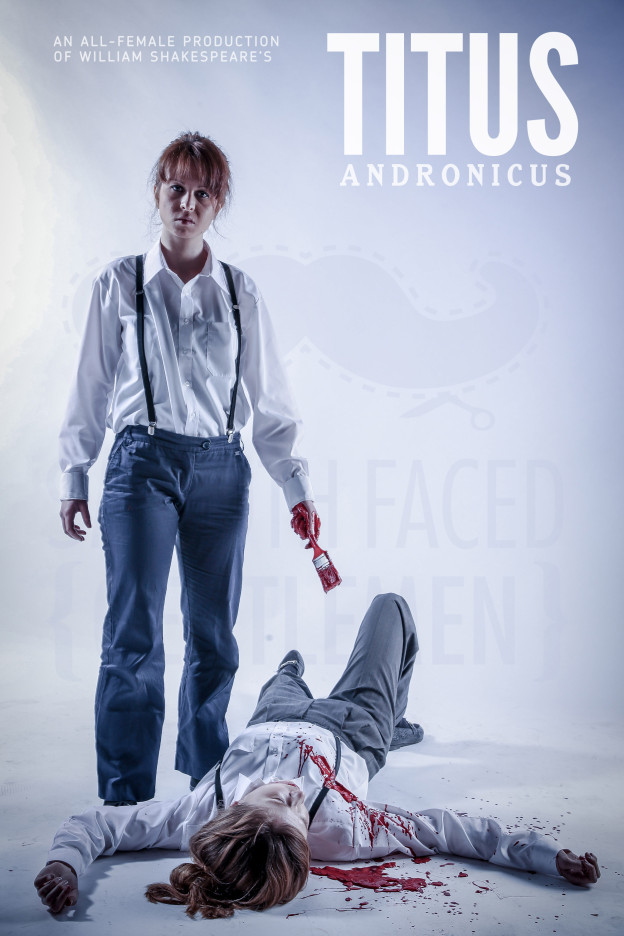
LINKS:
Arts
Guardian Features
Vile.
Hateful. A horrible time Daily Telegraph,
2004
RSC
The Histories cycle
The
man who remade the RSC Evening
Standard. 2009-07-22.
RSC
Education SUFS
Royal
Shakespeare Company theatre opens doors to public BBC
News Online. 24 November 2010
King
Lear British Theatre Guide.
2009-07-22.
The
Seagull British Theatre Guide.
2009-07-22.
We're
going to need therapy' London:
Guardian.
2009-07-22.
Tennant’s
Hamlet confirms West End transfer thestage.co.uk.
2009-07-22.
Matilda,
A Musical Royal Shakespeare
Company. 2010-01-26.
Royal
Shakespeare Company official website
Royal
Shakespeare Company - Exploring Shakespeare
The
Company: A Dictionary of the RSC: Online database
RSC
Performance Database
The
Stratford Guide - A tourist guide to Warwickshire
Stand
up for Shakespeare
Your
Icons Highlights from the Royal Shakespeare
Company's collection
Smooth
Faced Gentlemen

Stratford
Upon Avon - Shakespeare's birthplace
Ashlea
* Camina * Carly
* Emma
* Fran * Henri
* Kayleigh * Leila
* Madeline
* Mariam * Stella
* Vivienne
Antony
and Cleopatra * Hamlet * Macbeth
* Othello * Romeo
and Juliet
A
Midsummer Night's Dream * As You Like It
* Much Ado About Nothing
The
Merchant of Venice * The Taming
of the Shrew
|




